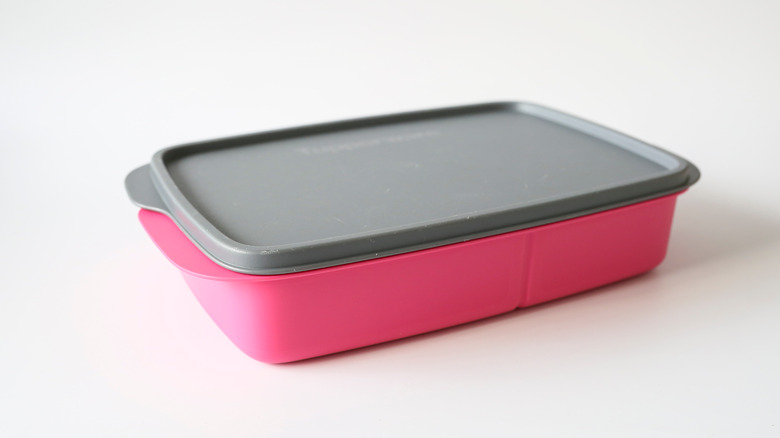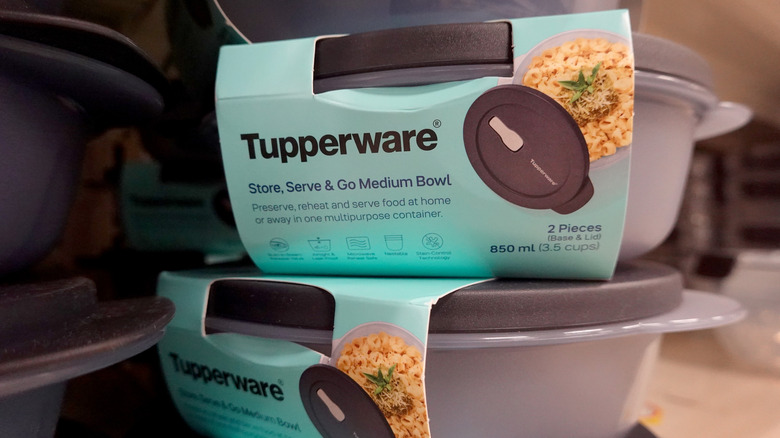Why Tupperware May Soon Go Out Of Business
A person attending a home Tupperware party in the 1960s probably couldn't have imagined a day when the food container company would no longer be selling colorful matching plastic sets for food and beverage storage. However, that day may be on the horizon.
Founded in 1947, Tupperware wasn't an immediate hit, but thanks to home parties that allowed women to sell the containers to their friends and family and make an income around child care and home life, the product took off. The ability of Tupperware to store food in a tightly sealed container to maintain freshness was also viewed as groundbreaking for the period. Through the decades, Tupperware built an extensive line of kitchen products, such as juice pitchers, cups, and colanders.
However, as the company became old enough to file for Medicare, it struggled to connect with a younger demographic despite efforts to move from traditional party sales to online retailers and brick-and-mortar stores. As a result, on April 7, Tupperware said the future of the company didn't look promising.
Declining customer base and sales
Though they might use the name to refer to similar products, new shoppers haven't found Tupperware products to be all that compelling. And despite the fact that the company announced an agreement with Target to begin selling its products in the big box retailer starting in October 2022, sales have not increased as Tupperware would have liked.
According to Tupperware's end-of-2022 financial report, company sales fell nearly 20% compared to the year before. This rout in the company's bottom line is likely due to the growing availability and cheapness of similar products through online retailers. Many people had also already stocked up on storage containers at the start of the coronavirus pandemic. Retail analyst Neil Saunders indicated to Marketplace that although "direct selling allows a kind of flexibility that is especially useful for women because parties can be scheduled around other responsibilities like child care," he suggested to CNN that fewer sellers are interested in the product.
After announcing a need to acquire additional financing to continue operations and exploring options like layoffs, Tupperware's shares fell by around 50% on April 10, causing even more concern for the legendary company's future.

